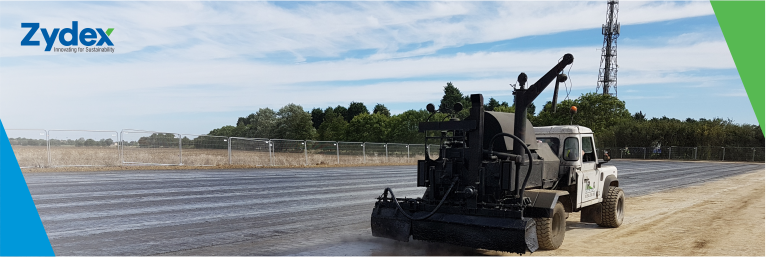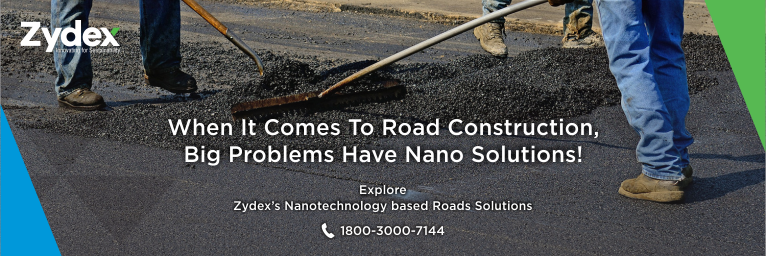What is stabilization?
Stabilisation is the process of improving the engineering properties of the soil before construction. Stabilisation is done to improve the CBR of the soil to be used for a specific construction purpose. This can be done using various additives including Portland cement, fly ash, lime, bitumen etc. These chemicals impart higher bond strength by providing cohesion between the soil particles.
Bitumen emulsion for Soil Stabilization
Using bitumen emulsion for soil stabilisation refers to the process of adding a specified amount of bitumen emulsion to the soil and mixing it appropriately to create a strong and stable base. The bitumen is dispersed in the water in the form of small droplets which are suspended in water by an electrostatic charge of the emulsifier.
Bitumen Emulsions can be used for stabilising both cohesive as well as non-cohesive soils. However, in soils with finer grain sizes, this method may no longer be cost effective as the soil particles require a high dosage of bitumen emulsion in order to provide the same/better level of bonding. Succinctly, the quantity of the bitumen emulsion will depend on the type of the soil so as to offer the desired strength to the soil base.
Following are some of the benefits attributed to the bitumen emulsion being used for soil stabilisation:
Waterproofing: Using bitumen emulsion for stabilisation is slightly different from cement stabilisation, as the soil particles coated with the emulsion renders it water-resistance.
Load bearing capacity: Soil stabilisation using bitumen emulsions result into a permanent sealing of the soil structure. This increases the load carrying capacity of the soil layers. The load distribution is 2-3 times higher than that of the unbound foundation layers.
Flexibility: The soil layers of the roads should act as supporting layers by absorbing the stresses of the vehicles moving on top of it and not deform under these stresses. In order to facilitate this, the soil layers need to be somewhat flexible, so as to retain the shape and size. In case of a rigid structural layer, the risks of crack formation are much higher thus increasing the risk of failure. This is the situation which calls for the use of bitumen emulsion. They are very thin flowing and can be easily mixed with the soil, which also calls for lesser bituminous binder.
Soil stabilisation with Foamed Bitumen
Additionally, foamed bitumen is also currently being used in the industry for soil stabilisation. Foamed Bitumen is a mixture of air, water and bitumen. Bitumen is heated on site and when small quantity of water is injected in to the hot bitumen, it expands explosively to about fifteen times its original volume and forms a mist or a foam. This results in to the formation of bitumen droplets with increased surface area. It has been proven that by applying foamed bitumen, it is possible to produce a semi-rigid layer of stabilised soil.




